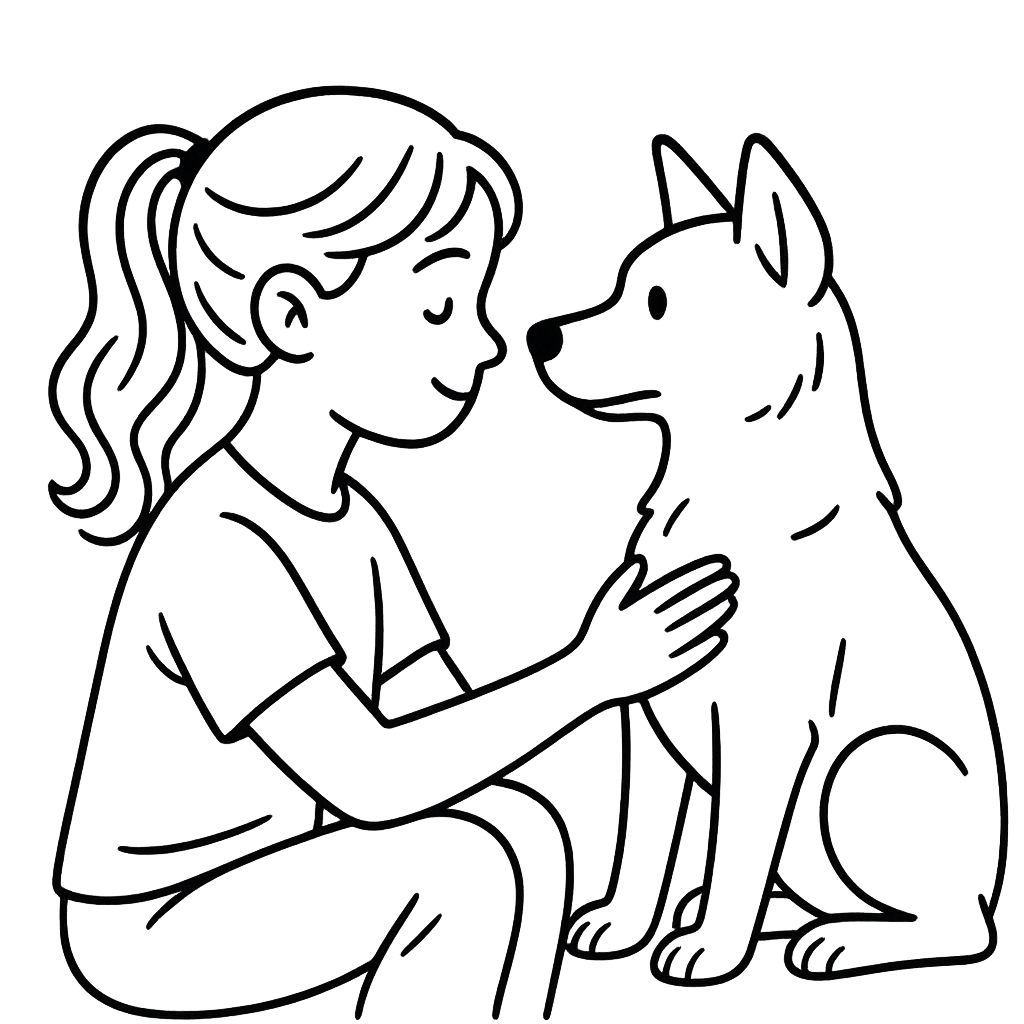CANINE HEALTH HUB
🩺 Vet Help: Your Dog’s Health, From Puppyhood to Golden Years
Whether you’re bringing home your very first puppy or you’ve loved dogs your whole life, keeping your pet healthy takes knowledge, care, and access to the right resources. This Vet Help section is your go-to guide for making confident decisions about your dog’s health—at every stage of life.
📆 Puppy Health & Growth Timeline
Understanding your puppy’s developmental stages helps you stay on top of their health and emotional needs. Here’s a general timeline with key milestones:
Age > What to Expect Health & Vet Needs
0–3 Weeks >Eyes open, start to crawl. >Mom handles care, no vaccinations yet
3–6 Weeks >Teeth come in, social skills begin. >Deworming, begin gentle socialization
6–8 Weeks >Eating on their own, playful. >1st vet visit, 1st round of vaccines
8–12 Weeks >Curious, learning rapidly. >Core vaccines, start safe socialization
3–6 Months >Teething, rapid growth. >Booster shots, flea/tick prevention
6–12 Months >Approaching adolescence. >Spay/neuter if appropriate, rabies vaccine, training reinforcement
🐾 Every Dog is Unique—Always Consult Your Veterinarian
While the guidelines provided are based on common practices, they may not be suitable for every dog. Factors like health, size, breed, and individual circumstances can affect what's best. Always consult with your veterinarian to determine the most appropriate care and approach for your dog. These resources are meant to offer general guidance, but personalized advice from a trusted professional is key.
Tip: The ideal window for socializing your puppy is 8–16 weeks old. Introduce them to sights, sounds, and friendly people/dogs during this period using appropriate experiences.
🐶 Common Canine Health Concerns
Understanding early signs of illness can help you act fast and prevent complications.
Disease > Signs > Prevention
Parvovirus > Lethargy, bloody diarrhea, vomiting. > Puppy vaccines
Distemper > Coughing, seizures, fever. >Puppy vaccines
Kennel Cough > Dry hacking cough, nasal discharge. > Bordetella vaccine
Heartworms > Coughing, fatigue. > Monthly prevention
Lyme Disease > Lameness, swollen joints. > Tick prevention, vaccine
Fleas & Ticks > Itching, red skin. > Monthly topical/oral meds
Worms (round, hook, tape) > Pot belly, scooting. > Deworming, fecal checks
Did you know? Dogs should have yearly wellness exams and dental checks—even if they seem perfectly healthy.
💉 Dog Vaccination Schedule
Vaccines protect dogs from serious diseases and are often legally required. Below is a basic schedule:
Age > Vaccines Needed
6–8 weeks - Distemper, Parvovirus, Adenovirus
10–12 weeks - DHPP (booster), Bordetella (kennel cough)
14–16 weeks - DHPP (final puppy booster), Rabies
6 months+Leptospirosis, Lyme (if needed)
Annually - Rabies (legal requirement), DHPP booster, Bordetella
Every 3 Years - Rabies (in many states), DHPP (based on vet guidance)
Always follow up with your vet to tailor vaccinations based on your location and lifestyle (e.g., dog parks, boarding, hiking).
🐕 Health Tips for New Dog Owners
🐾 Teething Pain: Puppies may chew on everything. Provide durable chew toys to save your shoes.
🐾 Feeding Guidelines: Feed age-appropriate food. Puppies eat 3–4x/day, adults 1–2x/day.
🐾 Weight Management: Feel your dog’s ribs (not see them); monitor body condition score.
🐾 Exercise Needs: Puppies = short, frequent play. Adults = longer structured walks.
🐾 Training Counts: Start basic obedience by 10–12 weeks. A well-trained dog is a safer, happier dog.
🐾 Important Health Factors Often Overlooked
Microchipping: Safe, permanent ID that increases the chance of being reunited if lost.
Pet Insurance: Can make unexpected or emergency care affordable.
Record Keeping: Keep all records—vaccine history, medications, prior illnesses—in one place or app.
Emergency Preparedness: Know your nearest emergency vet and have a go-bag with medications, food, and copies of vet records.
Allergies & Skin Conditions: Common in many breeds. Chronic itching, licking, or redness warrants a vet visit.
Arthritis & Joint Health: Supplements like glucosamine or prescription meds may be needed—especially for large or aging dogs.
End-of-Life Planning: While difficult, understanding palliative care and humane euthanasia helps owners make informed, compassionate decisions.
🩺 Core Vet Care Topics Every Dog Owner Should Know
1. Routine Wellness Exams
Dogs should have a wellness check-up at least once a year, and twice a year for senior dogs (7+ years).
Vets check weight, eyes, ears, teeth, heart, and joints—and catch early signs of illness.
2. Parasite Prevention
Fleas, ticks, and heartworms are not just nuisances—they can be deadly.
Monthly preventatives for heartworms, intestinal worms, and external parasites are a must—even for indoor dogs.
Ask about other risks like Lyme disease or leptospirosis.
3. Spaying/Neutering
Done around 6–12 months depending on breed, size, and health.
Prevents unwanted litters, certain cancers, and has been known to help reduce behavioral issues.
4. Dental Health
Dental disease is one of the most common vet issues.
Dogs need teeth brushing, dental chews, and professional cleanings as needed to prevent unwanted extractions.
5. Nutrition and Weight Monitoring
Over 50% of dogs are overweight—obesity leads to arthritis, heart disease, and diabetes.
Your vet can recommend proper portion sizes, food types, and feeding schedules.
6. Behavioral and Mental Health
Anxiety, aggression, or sudden behavior changes may be health-related.
Talk to your vet about medications, behaviorists, or training referrals.
7. Senior Dog Care
Senior dogs need more frequent vet visits, joint support, and screenings for chronic diseases.
Keep track of mobility, cognition, appetite, and energy changes.
8. Bloodwork and Preventive Screens
Routine bloodwork is recommended annually, especially for older dogs.
Detects kidney, liver, thyroid, or immune issues early.
9. Vaccination Reviews
Not all vaccines are needed every year.
Vets can tailor a core vs. optional vaccine plan (e.g., bordetella for social dogs, leptospirosis for outdoor dogs).
10. Travel & Boarding Health Requirements
Dogs often need updated vaccines, fecal tests, or health certificates for travel or boarding.
🐶 Your Dog Deserves the Best
Every dog is unique, and so are their health needs. While this guide offers a strong foundation, nothing replaces the value of a trusted veterinarian's insight. Whether you're navigating puppyhood, managing chronic conditions, or simply ensuring your dog lives their happiest, healthiest life—your vet is your greatest partner.
We encourage all dog owners, new and seasoned, to stay curious, ask questions, and keep learning. Don’t be afraid to seek a second opinion, research breed-specific needs, or explore wellness options that align with your dog’s lifestyle.
Because when it comes to your dog’s health, being proactive isn't just smart—it’s love in action. 🐾






